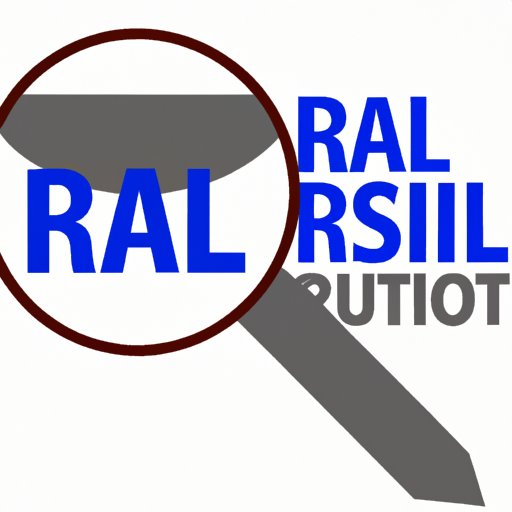
I. Introduction
Being arrested and thrown in jail is a terrifying ordeal for anyone. It can be even more daunting when you don’t have the funds to bail yourself or a loved one out. In this article, we will provide you with some insight on how to bail someone out of jail with no money. This article is intended for anyone who has a loved one in jail and is seeking ways to bail them out but cannot afford the bail amount.

II. Research organizations that assist with bail money
There are several reputable organizations that provide financial relief for those who cannot afford bail. The first step would be researching these organizations to find out if you or your loved one qualifies for assistance.
A few such organizations include the Bail Project, the National Bail Out Collective, and the ACLU. The Bail Project aims to provide bail assistance to those who are arrested for a misdemeanor, while the other two organizations are more focused on providing assistance to marginalized communities.
To be eligible for bail assistance, you will need to provide certain information about your financial status and the charges against you. The application process can vary depending on the organization, but most require an online application or a phone call to get started.
III. Explain the bail bond process in detail
A bail bond is a written agreement between the person who is bailing someone out of jail and a bail bondsman. The bond acts as a promise that the accused person will appear in court on the set date and time.
The bail bondsman charges a non-refundable fee for their services, usually around 10-15% of the total bail amount. This fee is an insurance premium for the bond, and the bondsman is responsible for ensuring the accused person shows up in court.
To secure the bond, the person who is bailing someone out will need to provide the bondsman with collateral, such as a car or a property. If the accused person fails to show up in court, the bondsman has the right to seize the collateral which was put up to secure the bond.
IV. Discuss alternative ways of payment
If cash or property collateral is not available, there are other ways to secure the release of an accused person. A property bond, for example, allows the accused person to use their property as collateral for the bond instead of paying cash.
Another option is a release on recognizance (ROR). With an ROR, the accused person is released from custody without having to pay bail. However, they must sign a written promise to appear in court on the set date and time.
It is important to note that both of these alternatives are not always an option. It depends on the crime committed and the judge’s discretion whether they are granted or not.
V. Provide a guide on how to prepare for court
Preparing a robust defense can help get an accused person out of jail without posting bail. It may be worth investing in a competent criminal defense attorney to argue for the accused person’s release.
The person who is bailing someone out can also help with preparation by gathering any relevant evidence, such as witness statements or police reports, and providing them to the attorney. They should also ensure the accused person has appropriate clothing and transportation to court.
VI. Explain the risks involved in using a bail bondsman
Using a bail bondsman can come with risks. If the person bailed out does not appear in court, the bondsman forfeits the collateral and can potentially sue the person who signed on as the indemnitor for the total amount of the bond.
If the accused person is found guilty and sent to jail, the bondsman is under no obligation to refund the non-refundable fee.
VII. Provide a list of factors that a judge can consider
When setting bail, a judge may consider several factors, including the severity of the crime committed, the accused person’s previous criminal history, their ties to the community, and their current state of employment.
Having an understanding of these factors can help the person who is bailing someone out prepare for the court hearing and present a stronger argument for a lower bail amount.
VIII. Conclusion
Bailing someone out of jail can be a complicated and stressful process. However, with the right resources and knowledge, it can be less daunting. Always ensure to explore all available options before deciding which is the best for you. Lastly, if you cannot afford to bail someone out of jail, contact an organization that provides bail assistance to those who cannot afford it.





